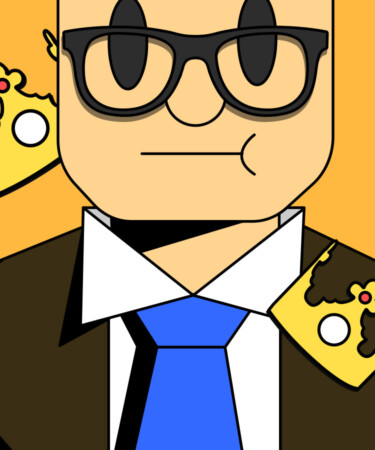This article is part of our Cocktail Chatter series, where we dive into the wild, weird, and wondrous corners of history to share over a cocktail and impress your friends.
In the ‘80s, the fight for the fast-food throne had never been dirtier. McDonald’s had the U.S. in a chokehold as the nation’s No. 1 purveyor of burgers, and its competitors wanted a bigger piece of the action. At the time, national ad campaigns were the brands’ strongest weapons. So to duke it out against the popularity of the champ’s winning “McDLT” (McDonald’s, lettuce, tomato) commercials and Wendy’s smash slogan “Where’s the beef?” Burger King (BK) introduced its own campaign — and perhaps the most expensive mistake the company would ever make.
In November 1985, the Florida-based chain launched a $40 million campaign entitled “Where’s Herb?” Its star: a mysterious character named Herb who’d never had the pleasure of dining at BK. This was a gamble on the mascot front: McDonald’s had an elite Disney-caliber cast of characters, and Wendy’s had, well, Wendy. But save for a few temporary figures, BK only had The King as its signature face. The creative team’s thinking was simple enough: The chain’s stalwart “Have it your way” slogan had been around since the ‘70s, so why not roll the dice with another mascot?
The initial ad appeared only in print, questioning Herb’s whereabouts in cryptic newspaper postings and football game banners — often leaving out any mention of BK itself. “What are you waiting for, Herb?” one read. Sinister? Perhaps, or at least enough to make a few people named Herb take the messages personally. One man allegedly thought the teaser ad was a threat from a loan shark, and an inmate at the North Dakota State Penitentiary wrote a letter to the chain explaining that he was unable to try its food because he was behind bars.
As the campaign progressed to TV, the chain kept Herb’s identity under wraps. The first on-screen ad featured interview snippets with Herb’s parents and peers, who described him as “a strange agent.” They quickly flashed to the “best picture” they had of Herb — a black-and-white photo of a guy holding a bowling ball in front of his face. As public curiosity grew and more ads aired, the company offered promos asking diners to distinguish themselves from the character: If patrons announced that they were “not Herb” while ordering, they would unlock a 99-cent Whopper deal. And if your name happened to be Herb, you could say, “I’m not the Herb you’re looking for.”
Herb’s grand reveal came in January 1986, when the character finally appeared in a BK Super Bowl ad. Played by actor Jon Menick, Herb turned out to be a clumsy, full-blown nerd donning thick-rimmed glasses, high white socks, and cropped trousers. In a follow-up ad, Herb holds a press conference to inform the media that he had finally tried a BK burger and (unsurprisingly) loved it.
While not necessarily charming, Herb was, at that point, the modern face of the brand. BK had to maintain Herb’s relevance, so it chose the priciest path of least resistance: contests and cash prizes. In honor of Herb’s newfound BK obsession, Menick embarked on a wildly expensive, six-week national tour, stopping at a BK in every state. The first person to spot him at each location was awarded $5,000, and everyone else present at the scene could enter a drawing for a $1 million grand prize. Herb did indeed show up, and people did get their money. But after Herb’s tour was complete, the public lost interest.
While sales initially jumped 10 percent during the three-month campaign, the spike was short-lived, and BK’s profits dropped by 40 percent by the end of 1986. The marketing push ended up costing the chain $40 million — which would amount to roughly $110 million in 2023.
On the bright side, Jon Menick used his role as Herb to jump start a lifelong career in film and television. And Herb did, in fact, end up entering the zeitgeist, albeit in an unexpected way: His name has been adopted as a slang term to describe a nerd, chump, or someone you’d just rather not hang out with.
For better or worse, the legacy of Herb lives on.
